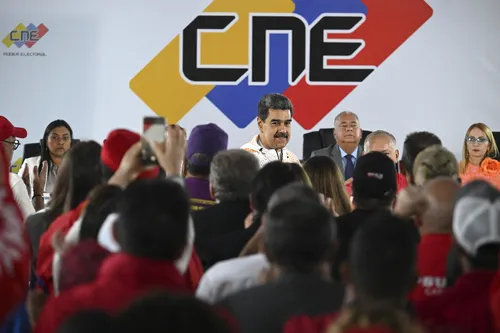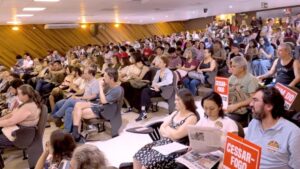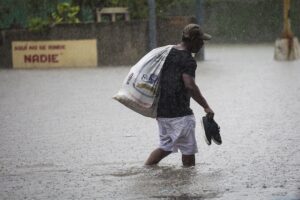
The president of Venezuela, Nicolás Maduro, will face the second largest number of competitors in an election in the last 31 years in the presidential contest scheduled for July 28th. This is because since 1993, only one election has had more participants than this year’s: the one that was held in 2006 and had 14 candidates.
In the Venezuelan political scene, where Chavismo has been a hegemonic political force for years, the opposition often fragments during electoral periods and, this time, it was no different: there will be 12 candidates trying to prevent Maduro’s re-election at the polls.
Part of the opposition was betting on the name of former deputy María Corina Machado, from Vente Venezuela, to face the current president. But the opponent is disqualified from holding public office for 15 years and, therefore, chose professor Corina Yoris to take her place. She was also unable to register, citing problems on the National Electoral Council (CNE) website.
Without Corina, the governor of Zulia, Manuel Rosales, from the Un Nuevo Tiempo (UNT) party, who registered on the night of March 25, emerges as a strong right-wing name for the dispute.
The 2024 electoral race has five fewer candidates than the 1993 elections, in which 18 candidates contested the election. At that moment, the winner was Rafael Caldeira, who led an alliance with 17 small parties in the coalition called Convergência Nacional. It was a troubled period for Venezuelan politics – after Caracazo and the arrest of the young and recent leader, Hugo Chávez – and the number of participants was not synonymous with popular participation: abstention was 38.84%.
The next elections were in 1998 and were marked by the victory of Hugo Chávez. After leaving prison, the former president led the Fifth Republic Movement (MVR) to win the dispute against Henrique Salas Romer. The leader of the Venezuelan left received 56.2% of the votes in a race that featured 10 opponents.
Soon after Chávez took office, a new Constitution was approved and, as a result, a new election had to be held. Once again the ex-soldier came out victorious, but this time against just two opponents. Chávez received 57% of the vote, while Francisco Arias Cárdenas had 37%.
Six years later, the elections were held with the largest number of candidates since Caldeira’s victory in 1993. In 2006, the election had 14 registered candidates and included the participation of Manuel Rosales, current candidate for elections, as Hugo’s main opponent. Chavez. At that time, he was already leading the UNT, but lost the race with 36.9% of the votes. At the height of his popularity, Hugo Chávez received 62.84% and was re-elected for the 3rd time.
In 2012, Chávez again won the dispute, but this time against only five opponents. The result was tighter and the leader of the United Socialist Party of Venezuela (PSUV) won with 55% of the votes. Henrique Capriles was ahead of Primero Justicia and had 44.31%.
The former president died of cancer at the beginning of the following year and, according to the Constitution, it was necessary to call new presidential elections. The National Electoral Council called the presidential election that would be the closest for Chavismo. In the same year, then vice-president Nicolás Maduro won the electoral race with 50.61% against 49.12% for Henrique Capriles. In addition to the two, four other candidates participated in that dispute.
In 2018, with a consolidated government and facing increased sanctions from the United States, Maduro ran for re-election and won with 67.84% of the votes. The main opponent was Henri Falcon, representing Copei. He received 20.93% in a contest with two other candidates
Election rules
Elections in Venezuela are held in a single round, so whoever receives the most votes is elected. The presidential term lasts six years.
Voters vote using electronic voting machines that print proof of voting on ballots. The voter checks whether the vote was recorded correctly and deposits the receipt in a ballot box for a possible recount of the votes. The National Electoral Council states that Venezuela “is the first country in the world to adopt this type of mechanism”. Since 2004, the election has been carried out in this way.
The 2024 elections are scheduled for July 28. Voters will have from 6 am to 6 pm to vote. The election campaign will take place from July 4th to 25th.
Editing: Lucas Estanislau
Source: www.brasildefato.com.br

